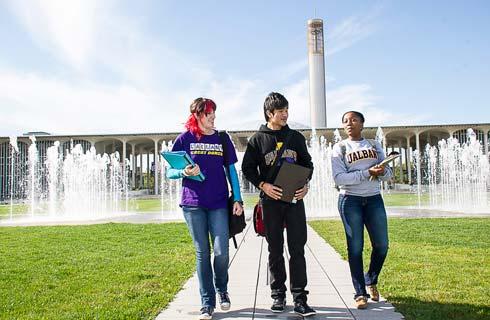荣誉人类学学士
BA (Hons) Anthropology

学历文凭
Bachelor Degree with Honours

专业院系
Anthropology

开学时间

课程时长

课程学费

国际学生入学条件
IDP—雅思考试联合主办方

雅思考试总分
6.5
- 雅思总分:6.5
- 托福网考总分:80
- 托福笔试总分:
- 其他语言考试:Pearson Academic PTE - 62 (with no less than 59 in each Communicative Skill) Cambridge C2 Proficiency or C1 Advanced - 176 with a minimum of 169 per component
CRICOS代码: L602
申请截止日期: 请与IDP联系 以获取详细信息。
课程简介
Social anthropology is the study of the people of the world and how they live. Understanding our social and cultural diversity helps us address major issues affecting our existence today.,Our BA Anthropology degree is designed to give you a thorough grounding in the theory and practice of social anthropology, in the context of a broad approach to the subject including biological anthropology as well as interdisciplinary perspectives on health. As you move through your degree, you will shift from being a consumer to a generator of knowledge, ready for professional or postgraduate life. You can also apply to add a placement year or a year abroad to your degree, increasing the course from three years to four.In the first year, you will receive a thorough grounding in the theory and practice of anthropology in the broadest sense, addressing the core disciplines of social and biological anthropology as well as interdisciplinary perspectives on health. In your second year, you will develop a deeper and more complex grasp of social anthropology and continue to gain ‘hands-on’ experience of conducting research through a series of local field trips and activities. In your final year, you will design and carry out your own research project for your dissertation and take part in our residential Field Course module, an intensive 7-day experience at one of several European destinations, or online as part of our Virtual Field Course.Course structureYear 1 modulesCore modules:People and Cultures provides an introduction to the people and cultures of the world from a social anthropological perspective and prepares you for further critical study of the discipline.Human Evolution and Diversity introduces how humans evolved over the past few million years to become the unique species we are today, rich in biological and cultural diversity. We also cover our relationships with extinct hominins and our closest primate relatives.Being Human: An Introduction to the History and Practice of Anthropology provides an overview of the history of anthropology, including the major theoretical developments and debates, and how these affect the practice of anthropology today.Doing Anthropological Research provides hands-on training in anthropological research methods, both quantitative and qualitative. This module will prepare you for future research projects including fieldwork and your dissertation, and allow you to develop highly transferable research skills.Health, Illness and Society promotes the value of a multidisciplinary perspective to the study of health and illness, and gives insight into how social, cultural, biological and evolutionary factors interact in the study of health and disease.You will learn about the potential for medical anthropology and evolutionary medicine to contribute to health policy and planning in diverse human societies.Year 2 modulesCore modules:Anthropological Research Methods in Action provides opportunities for inquiry-based learning by addressing key anthropological issues beyond the classroom. You will learn to develop and apply research skills relevant to the different areas of anthropology, including field-based research.Research Project Design builds upon previous methods training by providing the skills necessary to develop independent research projects, particularly the dissertation.Markets and Exchange will develop your knowledge and ability to think critically about the anthropology of economics across diverse cultures and societies.Relations and Belonging provides a cross-cultural overview of the anthropological study of kinship and relatedness.Ritual, Religion and Belief provides a cross-cultural overview of the anthropological study of religion.Power and Inequality will allow you to develop your knowledge and ability to think critically about the anthropology of politics, power and inequality across diverse cultures and societies.
相关申请
 预科
预科 奖学金
奖学金 实习机会
实习机会 在校学习
在校学习 跨境学习
跨境学习 校园授课-线上开始
校园授课-线上开始 在线/远程学习
在线/远程学习
开学时间&学费
学费信息仅供参考,请与IDP联系以获取详细信息
| 开学时间 | 时长 | 学费 | 地点 |
|---|
学校排名

世界排名114
数据源:
泰晤士高等教育世界大学排名
关于杜伦大学

杜伦大学创建于1832年,是英国历史最悠久的大学之一。杜伦大学建于中世纪世界遗产地旁,有着悠久的历史和现代价值观,是一座备受推崇并拥有前瞻性思维的学府。如今,来自世界各地的18000多名学生在达勒姆就读。杜伦大学有28个系,开设有200多门本科和研究生课程。该校很多教师都处于各自领域的最前沿。教职人员利用出色的研究和学科知识为所有学生提供优质的教学。目前,杜伦大学有17个学科在全球大学中名列前100位,其中九个学科名列前50位。除了在学术上的卓越成就,该校还努力为学生提供支持,帮助他们在毕业后获得有意义的工作。其毕业生就业能力目前在世界上排名第88位。该校的就业与创业中心致力于培养学生的专业技能,并提供商业人脉和工作机会。杜伦大学目前在2020年《QS世界大学排名》中名列第78位,稳稳跻身全球大学百强之列。该校为教职人员和学生创造了一个热情友好的多元化社交环境,并因此而倍感自豪。目前,杜伦大学28%的在校生为非英国本土学生。大学社区处在独一无二的达勒姆求学体验的核心位置,达勒姆的每个社区均是多元化、多学科的社区,由来自不同背景和文化的学者、学生和工作人员组成。有了这些社区,加上该校杰出的支持体系,学生们一定会有宾至如归之感,并可参与大量精彩的课题。
本校相关课程

博士神学与宗教
学历文凭
Ph.D.
开学日期
课程费用总额


MLitt神学与宗教
学历文凭
Masters Degree (Taught)
开学日期
课程费用总额


博士学位论文博士学位
学历文凭
Ph.D.
开学日期
课程费用总额


理学硕士心理学研究
学历文凭
Masters Degree (Research)
开学日期
课程费用总额


研究心理学硕士
学历文凭
Masters Degree (Research)
开学日期
课程费用总额


博士哲学
学历文凭
Ph.D.
开学日期
课程费用总额

其他相关课程

国家土著研究中心哲学博士
 澳大利亚国立大学
澳大利亚国立大学学历文凭
Ph.D.
开学日期
课程费用总额


芬纳环境与社会学院哲学硕士
 澳大利亚国立大学
澳大利亚国立大学学历文凭
Masters Degree (Research)
开学日期
课程费用总额


社会科学学士(荣誉学位)
 纽卡斯尔大学
纽卡斯尔大学学历文凭
Bachelor Degree with Honours
开学日期
课程费用总额


哲学博士(人文,艺术和社会科学)
 斯威本科技大学
斯威本科技大学泰晤士高等教育世界大学排名:282
学历文凭
Ph.D.
开学日期
课程费用总额


国际发展研究生文凭
 乐卓博大学
乐卓博大学泰晤士高等教育世界大学排名:267
学历文凭
Graduate Diploma
开学日期
课程费用总额


土著哲学博士
 南十字星大学
南十字星大学泰晤士高等教育世界大学排名:456
学历文凭
Ph.D.
开学日期
课程费用总额










 英国
英国